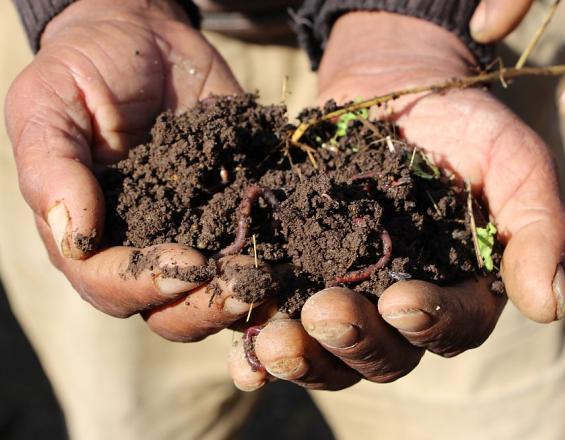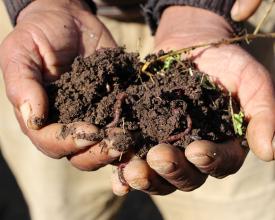
Una tecnología "rápida" para que los agricultores mejoren la fertilidad del suelo: lombricultura y lombricompostaje en Etiopía

ISFM+ promueve el uso de la gestión integrada de la fertilidad del suelo (ISFM) en las tierras altas de Etiopía. La lombricultura o vermicompostaje es una tecnología que utiliza lombrices rojas(Eisenia fetida) para descomponer los residuos orgánicos y producir compost rico en nutrientes y lombrices para vender o alimentar a las aves de corral. Los agricultores construyen cajas de lombrices con materiales disponibles localmente y garantizan los cinco elementos esenciales para el vermicompostaje: material de cama (fuente de carbono), alimentación (material vegetal y estiércol), buena ventilación (oxígeno), humedad estable (contenido de humedad del 60-70%) y temperaturas adecuadas (15-35°C). ISFM+ aplica un enfoque asociativo en el que los socios desempeñan papeles clave en la ejecución de diversas actividades. El proyecto utiliza un enfoque de formación de formadores en cascada para capacitar a los socios e integrar tecnologías y enfoques en paquetes de extensión regional. Emplea un enfoque participativo de aprendizaje y extensión y fomenta la multiplicación local de lombrices de tierra.
Impactos
El vermicompostaje es una de las tecnologías "quick-win" de ISFM+ que satisface necesidades a corto plazo como el rendimiento de grano y biomasa en las explotaciones, al tiempo que contribuye a objetivos a largo plazo como el uso eficiente y sostenible de los recursos, la gestión adecuada de los residuos, el reciclaje de nutrientes y desechos y el aumento de la materia orgánica del suelo y, por tanto, de la fertilidad del suelo y la infiltración y retención del agua. El Instituto de Investigación Agrícola de Tigray evaluó los fertilizantes orgánicos (vermicompost, compost y estiércol de granja) mostrando que el vermicompost tiene el mayor contenido de carbono orgánico, N, P, K, Cu, Zn y Fe. Este resultado motivó a otras instituciones de investigación a realizar nuevas investigaciones sobre los efectos en el rendimiento de diversos cultivos, que son muy prometedoras y están pendientes de publicación. La aplicación de vermicompost ha tenido una gran aceptación y aceptación debido a los efectos observados en el rendimiento. Los campos de demostración y las visitas regionales de intercambio contribuyeron a la actual ampliación de la tecnología en las regiones. La elevada demanda de lombrices de tierra generó oportunidades de ingresos a través de la venta de lombrices excedentes a pares u ONG (ingreso medio anual estimado de 4000 ETB por agricultor (n=800)) y condujo al establecimiento de 565 centros públicos o privados de multiplicación de lombrices con un volumen de producción de 36 t/año. Además, al menos 17 partes interesadas (ONG, PYME o donantes) reproducen la tecnología de lombricultura hasta mediados de 2020.




